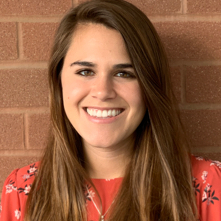If you’re reading this blog, be proud of yourself for getting help for bulimia. It can be truly overwhelming making those phone calls and doing that Google search to find the best support options for you. This blog will give you a bit of insight into how you can start your recovery from bulimia journey.
Find local support options
When getting help for bulimia, you may want to consider working with a treatment team. To emphasize, you do not have to recover from your eating disorder alone. Support can be an extremely useful tool. For example, both peer and professional help can be critical in the recovery journey.
Use the NEDA Treatment Finder or the ANAD treatment finder to find local options.
Courage to Nourish also provides eating disorder nutrition therapy for clients in VA, DC, MD and PA. In addition to virtual appointments, we have two physical offices in College Park and Columbia, MD. We can also work with clients in a few other states like Colorado and California. Therefore, please reach out if you’re looking for an eating disorder RD. We’d be happy to answer your questions, schedule an appointment, or direct you to other resources.
If local support is tough to find, head to our resources page. Next, download our handout with helpful instagram accounts, podcasts and books. That would be a great place to start!
Work with a dietitian to eat regular and consistent meals
An eating disorder dietitian that specializes in eating disorders is an invaluable tool for bulimia recovery. For instance, a dietitian can provide support and feedback when it comes to your relationship with food, body and exercise. When recovering from bulimia, and any eating disorder, it is important to eat regular and consistent meals to properly nourish your body. The eating disorder voice makes this difficult to do. In turn, it makes meal time anxiety provoking and food thoughts loud.
Make a list of coping strategies
Examples of coping strategies are purging, restricting, bingeing and other eating disorder behaviors. They exist to cope with emotions that feel too big in the moment. For instance, it’s a place for anxiety or depression or other feelings to go and not feel as overwhelming. Therefore, when in recovery, it’s important to find other tools to use to cope. To put it another way, I like the metaphor of a tool box. You want to build up your toolbox so you’re not using 1 tool repeatedly and in situations where that tool won’t be helpful. It takes time to build the “toolbox,” so be patient and ask for support.
Some coping tools are:
- Distraction: watching TV, reading a book, listening to music
- Connection: calling a friend or a family member, bonding with a pet
- Mindfulness: focus on your breathing, do a meditation youtube video
- Grounding: feeling your feet on the ground, notice 5 things you can see, 4 things you can touch, 3 things you can hear, 2 things you can smell and 1 thing you can taste
You can work with your dietitian and your therapist to come up with a list of alternative coping skills.
Reach out to loved ones
Loved ones can be an ally. Is there anyone in your life you can talk to about your eating disorder? Consider confiding in a close family member or friend.
We offer a support group for loved ones. So, if your family members or friends are looking for more information on supporting someone with an eating disorder. Check out our group page.
I understand in some circumstances loved ones may not be supportive. You might find it helpful to connect with a peer support group. Or find recovery oriented social media.
Getting help for bulimia is so important. If you read this blog, and any of the above resonates with you, please reach out. Courage to Nourish is a team of compassionate and knowledgeable dietitians who want to help. If you’re feeling hesitant, I totally understand. We offer 15 minute “discovery calls.” You can ask questions and get to know your dietitian before meeting with her.
If you’re not ready to schedule an appointment, click here to head to our resources page. It could be helpful to browse a few recovery resources before taking the next step.
Contact us today for more information about meeting with one of our dietitians. Also, sign up for our client or clinician newsletter!

Helping my clients cultivate meaningful connections and interests outside of their eating disorder is a true passion of mine. I like to think my clients and I are on a team to navigate recovery. I love working with high school and college students as well as athletes seeking to have a better relationship with exercise. I am a proud anti-diet dietitian and work with my clients through a Health At Every Size © and intuitive eating framework.

